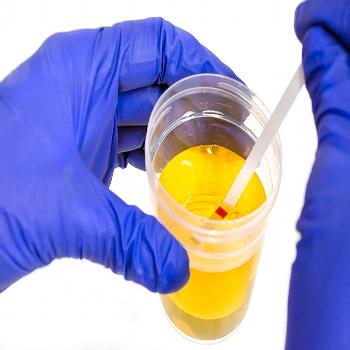- Compliance: Meets the drug testing requirements established by the Department of Transportation (DOT) in accordance with 49 CFR Part 40.
- Target Audience: Specifically designed for employees in safety-sensitive positions regulated by the DOT.
- Detection Capabilities: This test detects all regulated analytes at the cutoffs designated by the DOT, conducted at a SAMHSA-certified laboratory.
- Testing Process: As a laboratory-based test, it includes routine screening for each drug class and necessary confirmation testing.
- Detection Window: On average, most drugs can be detected in urine for approximately three days following the most recent use or exposure. A confirmed positive result for any drug or drug metabolite is considered evidence of use or exposure within that timeframe.
- Substances Tested:
- Marijuana
- Cocaine
- Opiates (including heroin)
- Amphetamines and methamphetamines
- Phencyclidine (PCP)
This comprehensive testing solution ensures compliance with federal regulations while promoting safety in the transportation industry.
Why would I need this test?
The 5-Panel DOT Urine Drug Screen is a mandatory test for individuals employed in safety-sensitive positions regulated by the U.S. Department of Transportation (DOT). This includes occupations like commercial truck drivers, pilots, train operators, and maritime workers. The test ensures compliance with federal regulations aimed at promoting public safety by identifying substance use that could impair job performance.
Will over-the-counter or prescription medications affect the test results?
Yes, certain over-the-counter and prescription medications can affect the test results by causing false positives or being detected as controlled substances. Medications such as some cold remedies, pain relievers, or prescription drugs like amphetamines and opioids may influence the outcome. It's crucial to inform the testing administrator about any medications or supplements you're taking to ensure accurate interpretation of the results.
Do I need to prepare for the test?
No special preparation is required for the test. However, to help ensure accurate results, you may consider avoiding:
Poppy seeds, which can lead to positive results for opiates.
Certain herbal supplements that might contain ingredients affecting the test.
Tonic water, which contains quinine and could interfere with the results.
Do not discontinue any prescribed medications without first consulting your healthcare provider.
How is the sample collected for the test?
The test involves providing a urine sample at a certified collection facility. A trained professional will guide you through the DOT's standardized collection process, which includes specific procedures to maintain the integrity of the sample and prevent tampering. You'll be directed to a private restroom to provide the sample, and the entire process typically takes around 15 to 30 minutes.
